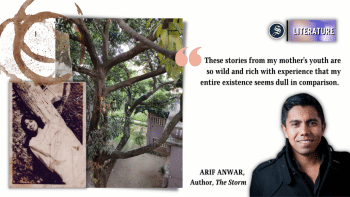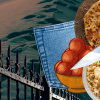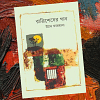‘In Extreme Need of Guidance’: Afterword

I know that this book lacks coherence, that I have failed to provide a chronological picture of Fareed and our intermittent relationship. He was 26 years-old and I was 16. My strange nature never allowed the relationship to grow in the manner it should have. Nevertheless, no amount of immaturity on my part could break or lessen our attachment for each other. How a gentleman copes with the whims and caprices of an uncouth and uncivilised country girl is a big question. It was only when, on the wrong side of 60, that I felt an urge to open the door of my long past yesterday with a man who was more mature than his age and more civil than required. The differences between us were irreconcilable, but they did not obstruct the flow of a strange relationship.
I am not the same person I was. That rough rural girl who could be unthinking, unfeeling, rude, and casually cruel. This does not mean that I have finally, as Fareed so desired, grown. To me that is a journey and not a destination. I have heard that lobsters, provided they have space and food, can continue to grow indefinitely, reaching prodigious sizes if left unmolested in the dark ocean depths. I feel that maturity too has no end point. If I should live a thousand years I feel I would be like a lobster, growing all the while, but only within.
Things have changed for me as I have grown older. I cannot bring myself to deliberately hurt a living thing. Sometimes I cannot even bring myself to kill the live fish brought from the market to eat. I put them in water to survive, then throw them into the pond. I made it a point to avoid killing insects if possible. If someone in my house catches a mouse in a mousetrap I forbid them to kill it. If I see children or adults trapping a bird I urge them to release it, even though I used to trap birds myself when I was young.
Fareed often observed that I was 'in extreme need of guidance'. I do not remember if I ever replied or paid attention to such remarks. I did not like to be lectured. At times I wondered how one could graduate without completing 11th or 12th class. Why he wanted me to be mature, why he thought I was in extreme need of guidance and why he wanted me to be a graduate I do not know. The fact was I had no interest in study and did not mind to pass my days without performing any duties of a student.
As a child my family moved from one place to another, roaming the country like nomads, without developing any attachment to any particular place or people. We had never been wealthy. We always lived in want. We knew little comfort or luxury, and so did not crave for what we did not know. I had all I needed. My eyes for the natural world around me. The fragrances of the seasons, and my childhood freedom, things that many are deprived of, that gratified my longing for wandering about the woods. These were the bits of happiness that I possessed and in one sense today I feel that freedom was a great luxury. Material affluence was subordinate to freedom and my love for nature.
My unstructured childhood had a cost. Unlike many, even my own siblings, I was without academic excellence or notable skill in any field. My childhood was spent in nature, living in want, and all people and characters I met throughout my life have filled that void with ease. They have given me the strength and courage to face life head on. It is a life in which I can hold anguish and delight with equal ease.
As a child, I was sated with whatever shabby clothes my mother gave me, and whatever food that was enough to fill my belly, and now that I reflect on my poverty-stricken childhood and I can only adore it for I have observed life from both sides. To live in want is a blessing, I recognise that, as much as I recognise the danger of a decadent life lived in luxury, especially one that is built on illicit wealth. I've seen people who live such lives, who can and do buy anything they fancy, seek out and obtain any raw pleasures that their souls desire. They are vain. In constant fear of losing their ill-gotten wealth, unable to imagine that the decades ahead of them may not be materially fortified. They seek out others like them to accumulate even more wealth and power. Their minds are singularly focused on these subjects.
I do nonetheless thank God for giving me the opportunity and scope of experiencing the taste of affluence as well as austerity and for giving me the sense to tell right from wrong. The onus of honesty is heavy. Only a few can walk that narrow righteous path. Now, at the fag end of my life, I feel strongly the need to live a life where material gain no longer reigns supreme. I pray to God to lead me in that direction.
I graduated. I practised in the supreme court for decades. Wrote poetry. Wrote books. My children graduated, worked, loved, married and had their own children who also graduated. Yet I still wonder if I will ever mature. My family apparently knows this. Some years ago my daughter-in-law was preparing Cerelac for her two children when I was surprised to see her prepare three bowls–the last one was apparently for me, for she knew that I never lost my taste for baby food. I was happy to note her common sense and consideration. Even when my sons were little I would hope that they would leave some of their tapioca and milk for me but they always finished all of it. I would get upset if they didn't leave it for me and sometimes would take it away from them early and have some myself.
If you've read this far, dear reader I don't doubt that you are disturbed, perhaps also intrigued, wondering what there is to learn from this book when all I have narrated are my follies. The truth is: nothing. Following in my footsteps will lead to ruin, but I do remember what my father used to tell me, that you could find the path to modesty by observing an immodest person.
Happiness and unhappiness are two sides of the same coin, I know that now, and that shortcomings were the only thing I had in abundance when I was a child. By the time I had grown, it was too late to fix myself, so I devoted myself to raising my children the correct way so that they would not be burdened by my lackings. I taught them manners. I taught them to be truthful, kind and like my father, to cherish incorruptibility. Being the eldest of my siblings, I told them the same things, even though almost all of them were more polished and academically accomplished than me. Now that all my children are educated, well-mannered and content, I entertain the thought that perhaps I am happy. Finally happy after all these years.
When I turned 60, following the death of my husband, I decided to settle down to a solitary life in an unfamiliar place where I knew no one. I fell in love with the hills and streams of Sreemangal. There I built for myself a small house. It is my piece of heaven and every morning I rise full of love for this land, now no longer as I was before, having gone through a metamorphosis. Now people think of me as amiable, interesting, and when they see how I live they say that they wish they could do what I do now. That what they want most is a life like mine.
Sultana Nahar is an author, lawyer, and former columnist at The Daily Star.

 For all latest news, follow The Daily Star's Google News channel.
For all latest news, follow The Daily Star's Google News channel. 











Comments